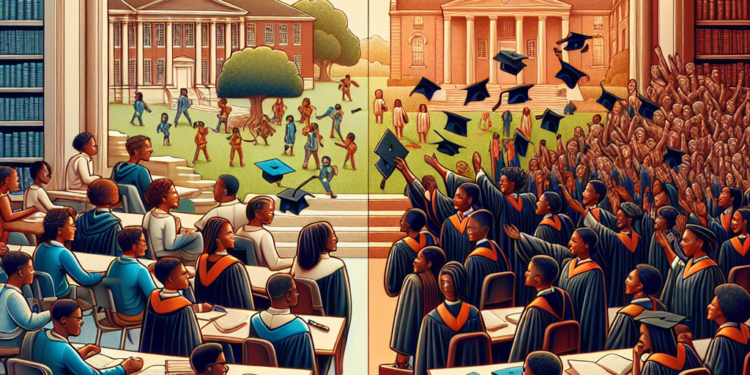Historically Black Colleges and Universities (HBCUs) have played a crucial role in shaping the future of education and society as a whole. These institutions have a rich history dating back to the 19th century, when they were founded to provide African Americans with access to higher education in a segregated society. Today, HBCUs continue to serve as beacons of diversity and inclusivity, offering students from all backgrounds a quality education and a strong sense of community.
One of the key aspects of HBCUs that sets them apart from other institutions is their commitment to diversity and inclusion. These colleges and universities were founded on the belief that all individuals, regardless of race, should have equal access to education. As a result, HBCUs have a long history of welcoming students from diverse backgrounds and providing them with the support and resources they need to succeed.
In addition to promoting diversity, HBCUs also play a crucial role in fostering inclusivity on their campuses. These institutions provide a safe and welcoming environment for students of all races, genders, and backgrounds to learn and grow. HBCUs actively work to create a sense of community among their students, encouraging them to support and uplift one another in their academic and personal pursuits.
Furthermore, HBCUs serve as important centers of cultural and historical education. These institutions often offer specialized programs and courses that focus on African American history, culture, and heritage. By incorporating these elements into their curricula, HBCUs help students gain a deeper understanding of the contributions and experiences of African Americans throughout history.
HBCUs also play a vital role in shaping the future by producing a diverse and highly skilled workforce. Many HBCU graduates go on to become leaders in their fields, making significant contributions to society and the economy. These individuals bring a unique perspective and a valuable set of skills to their professions, helping to drive innovation and progress in a wide range of industries.
Overall, HBCUs have a significant impact on the future of education and society by promoting diversity, inclusivity, and cultural understanding. These institutions continue to play a crucial role in shaping the next generation of leaders and change-makers, empowering students to achieve their full potential and make a positive impact on the world around them. As we look to the future, it is clear that HBCUs will continue to be key players in advancing diversity and inclusivity in higher education and beyond.











